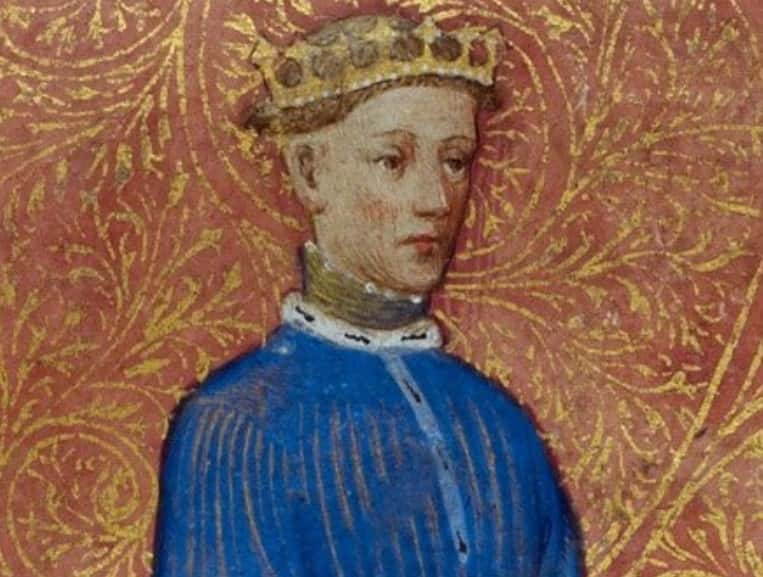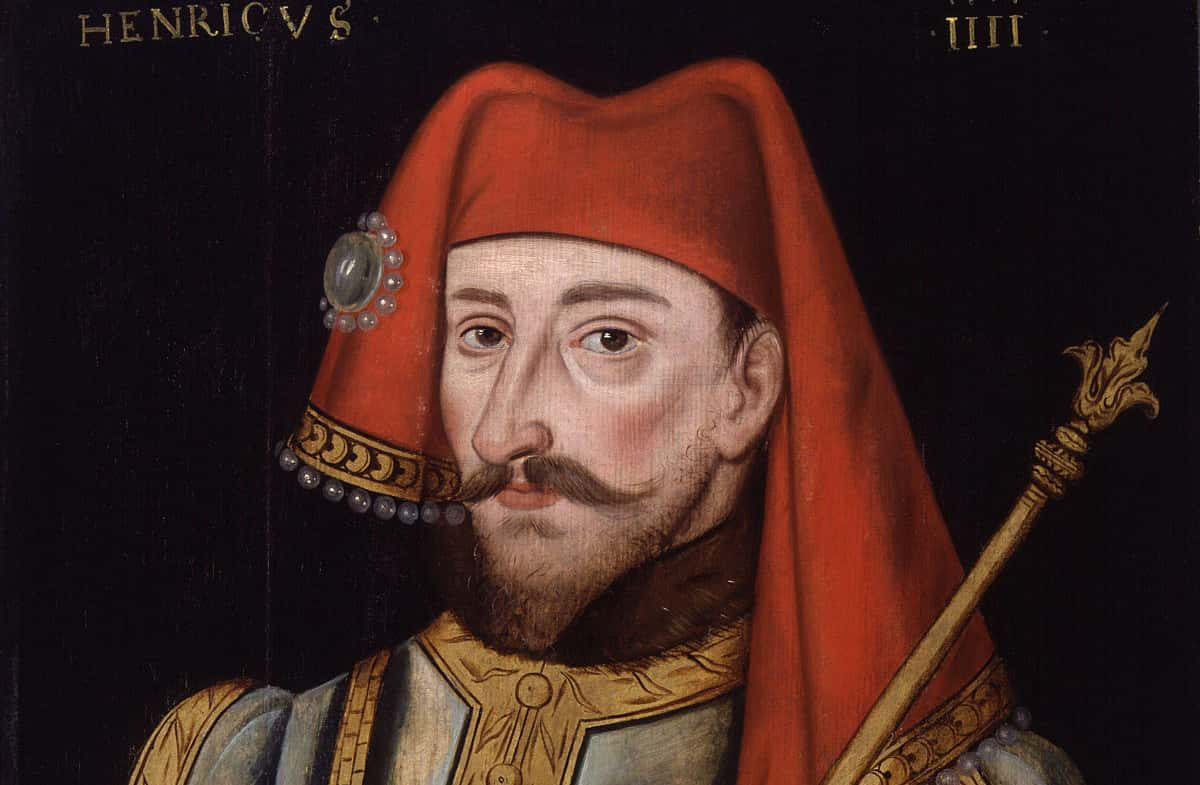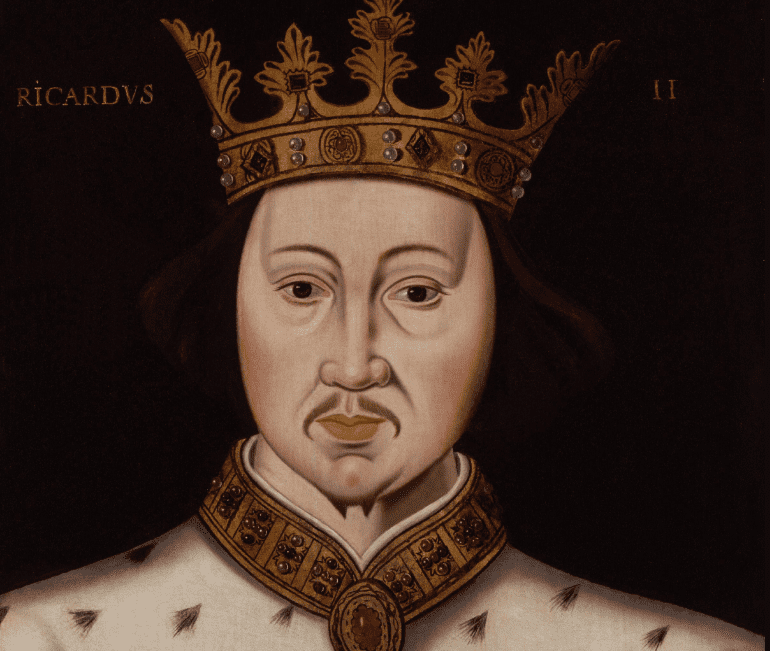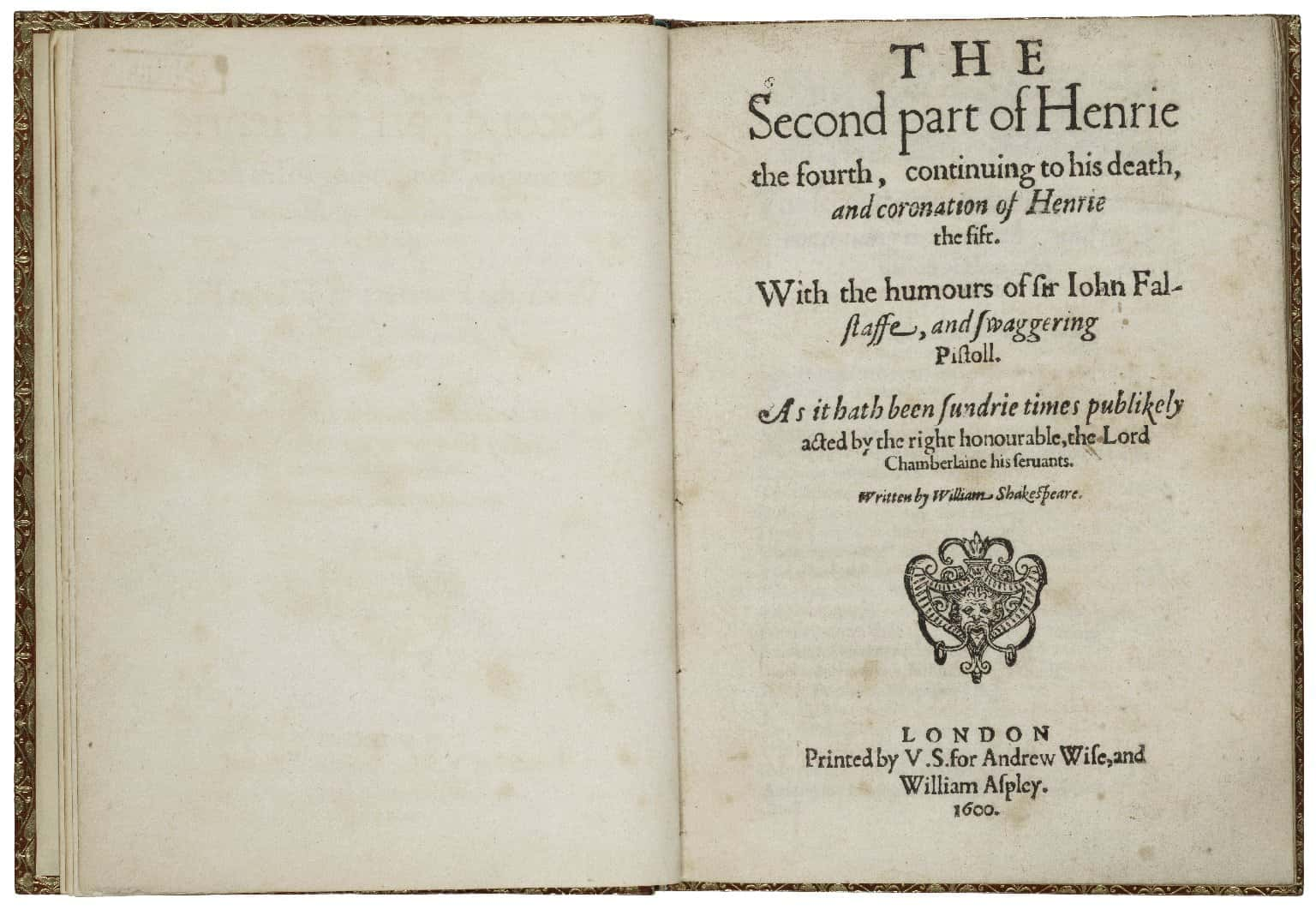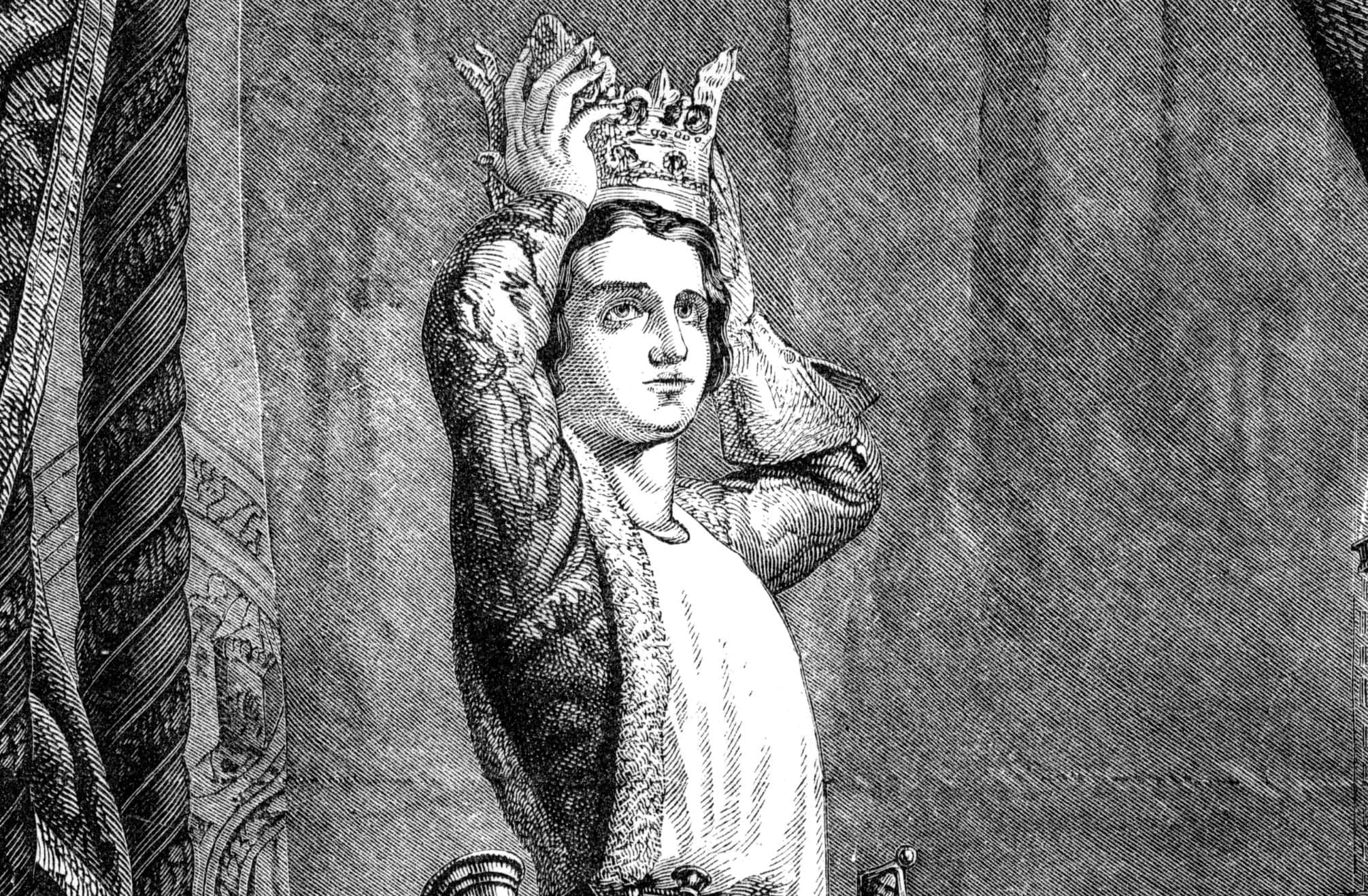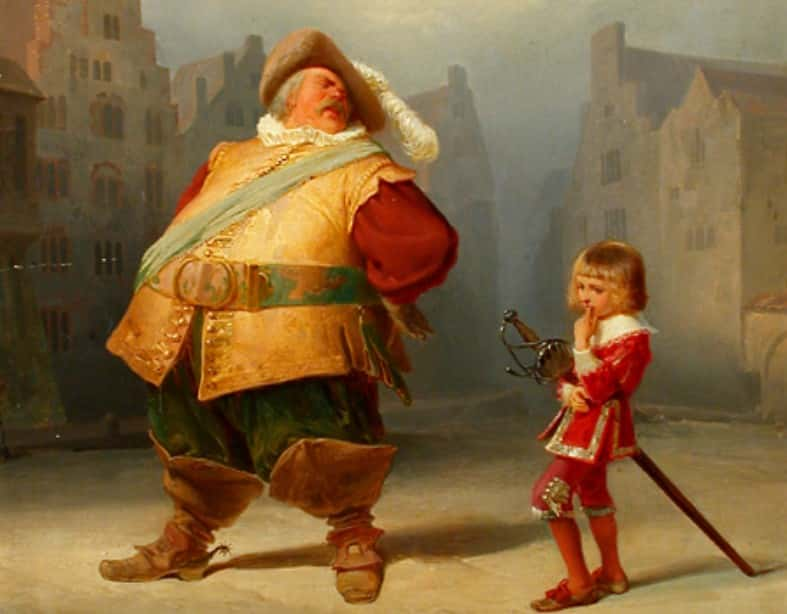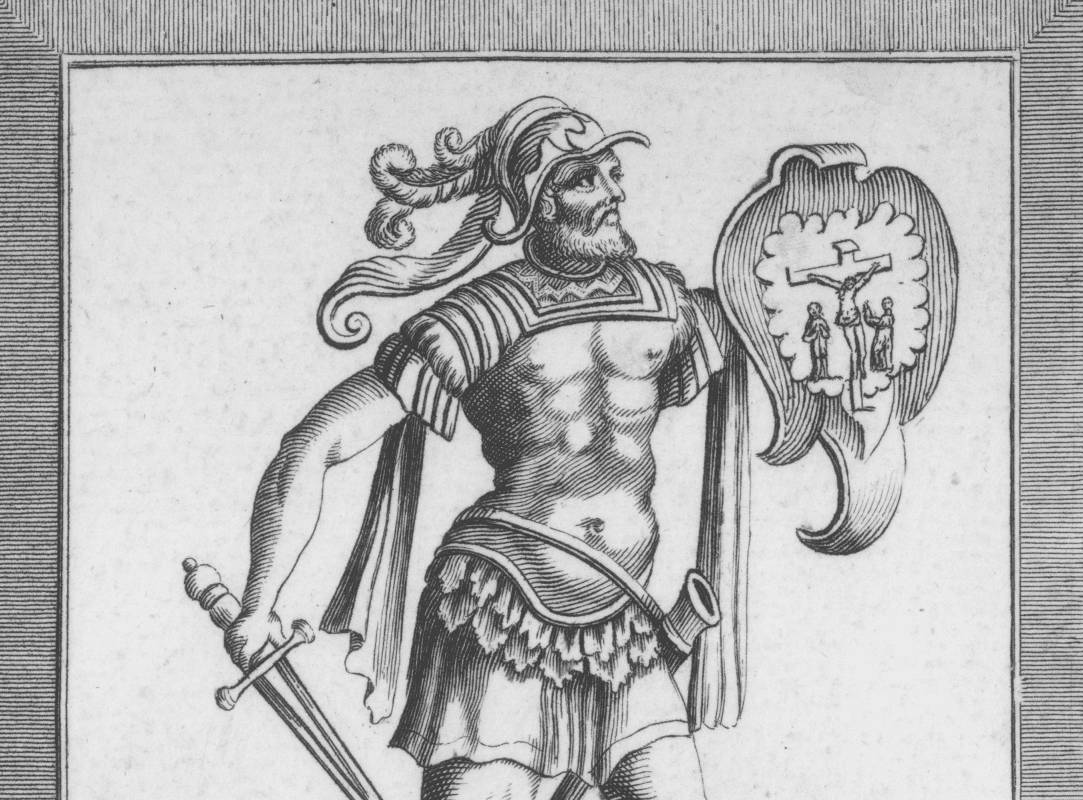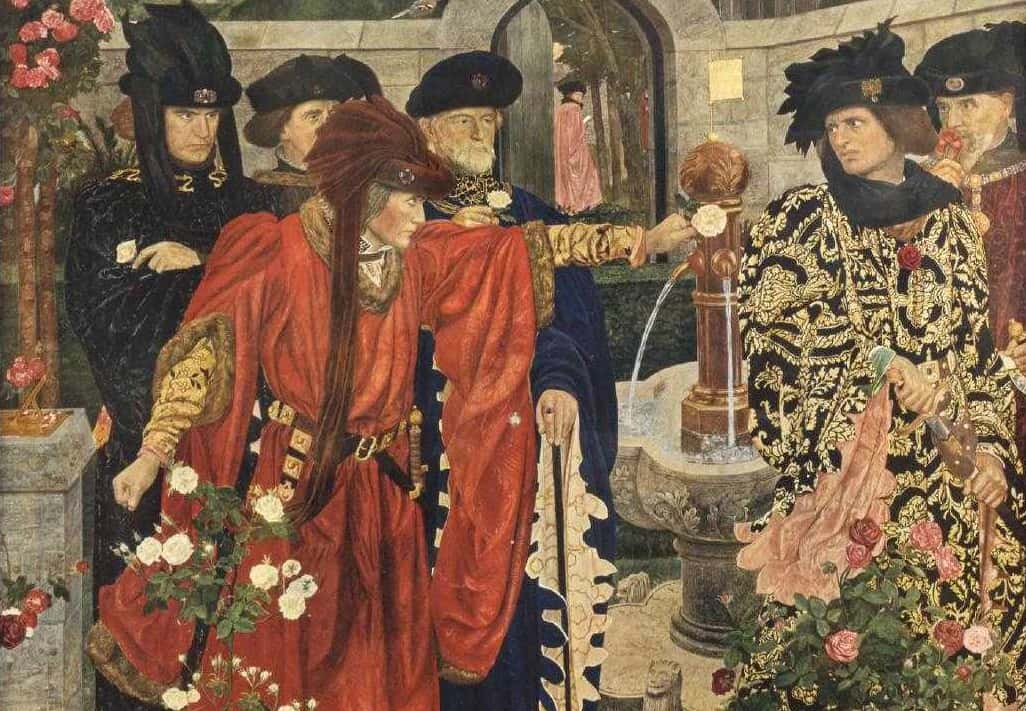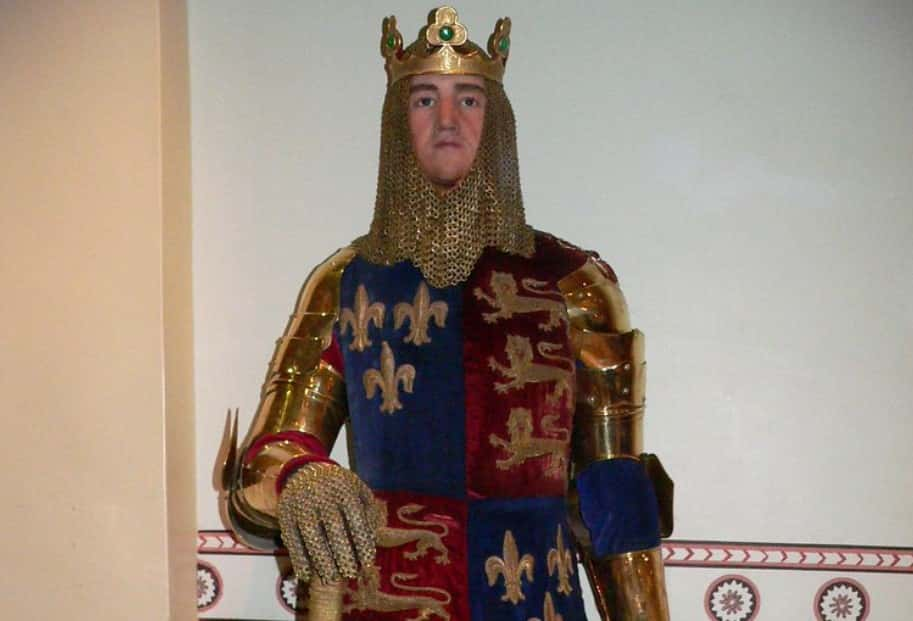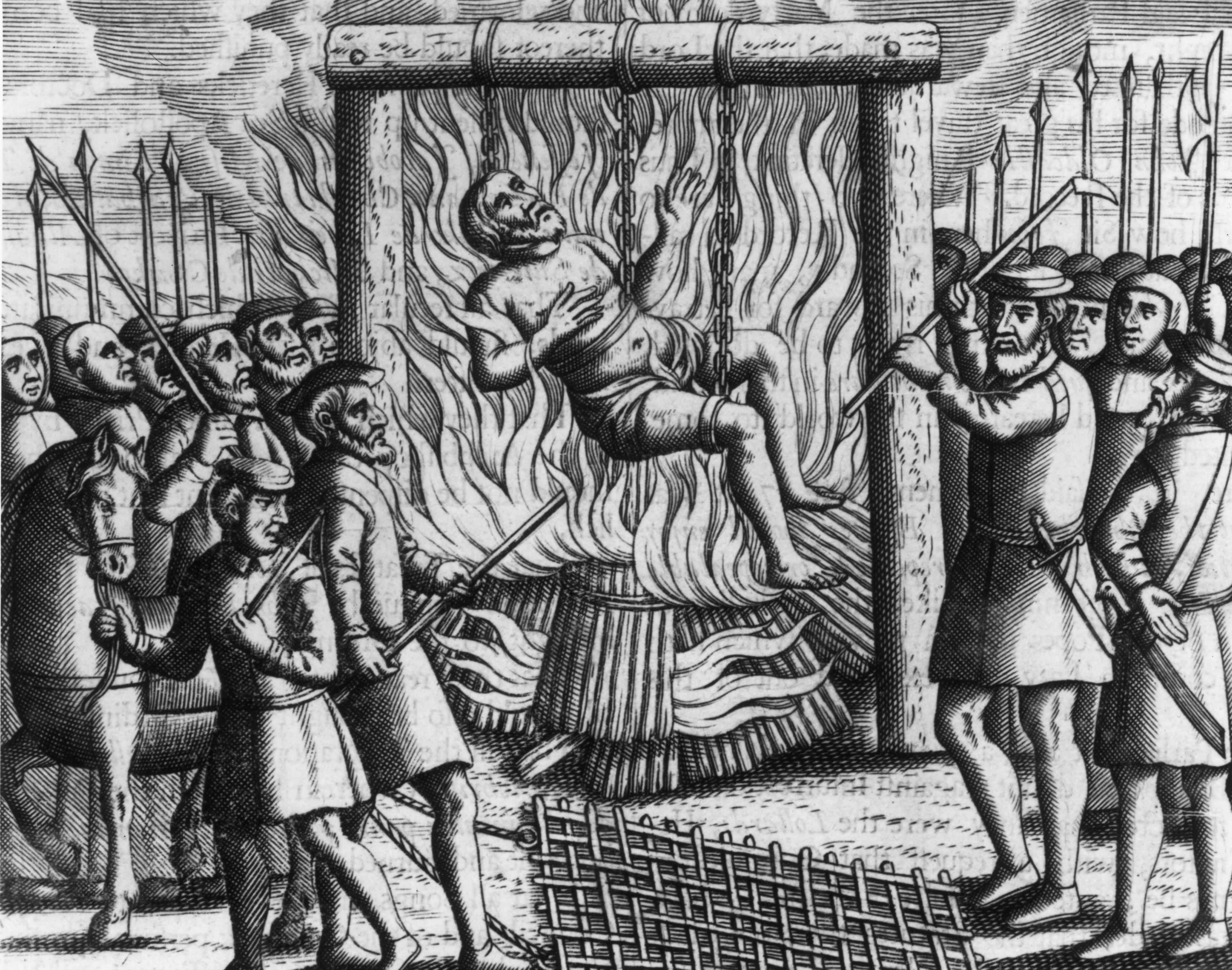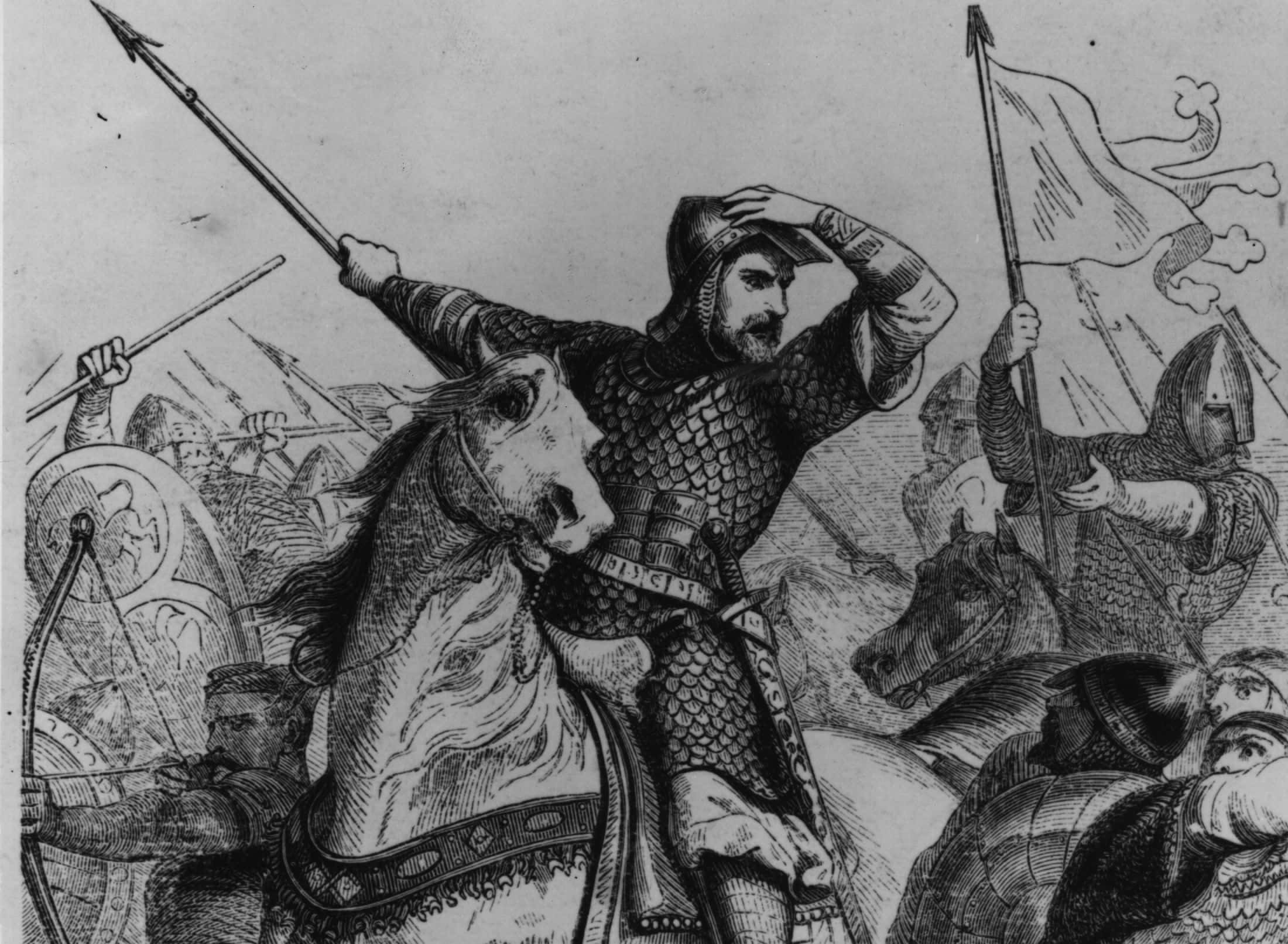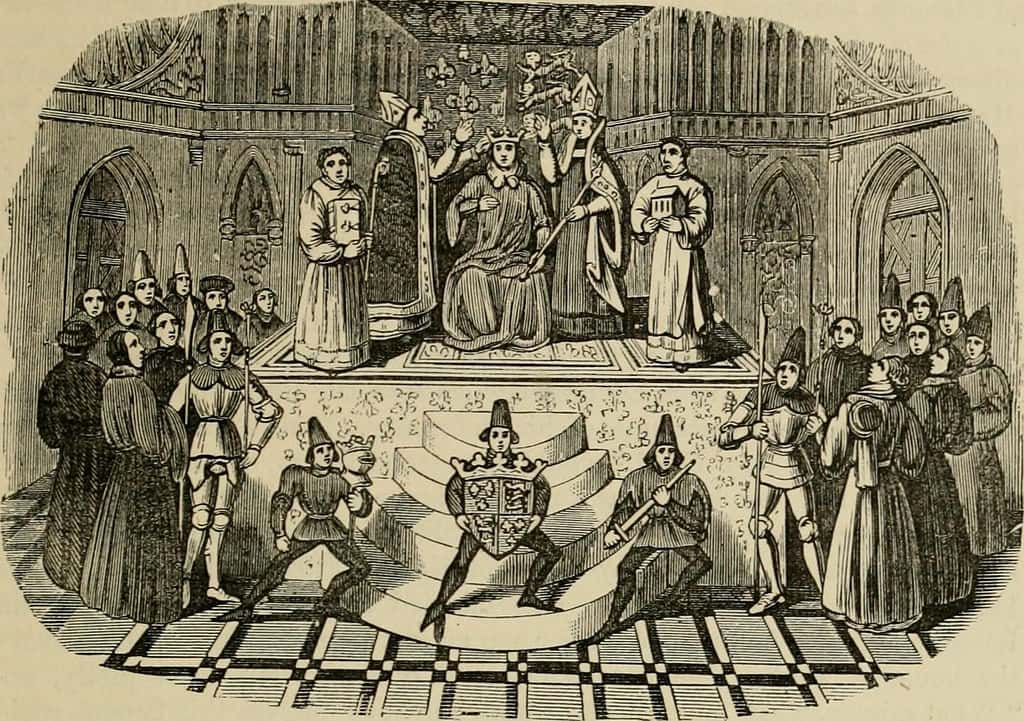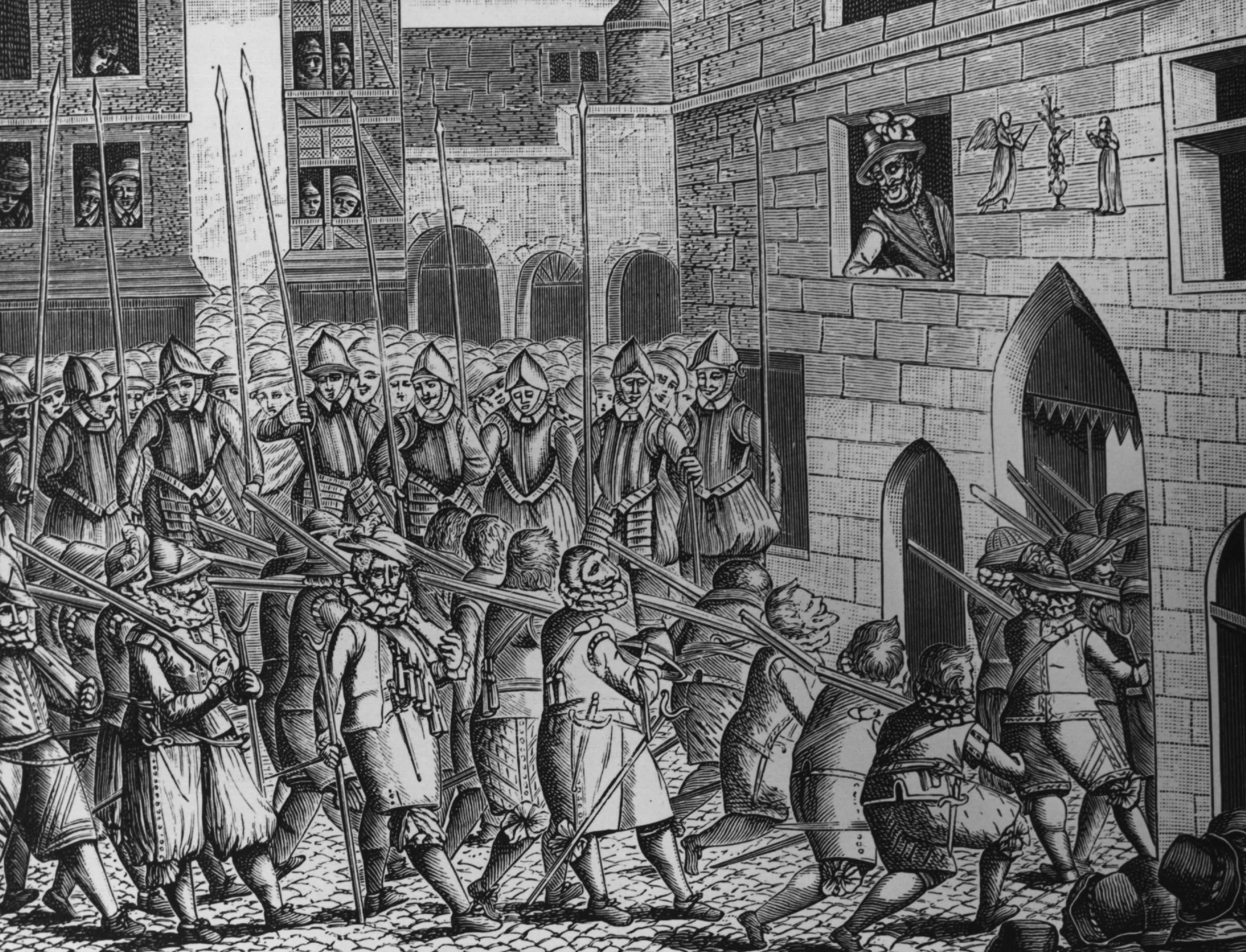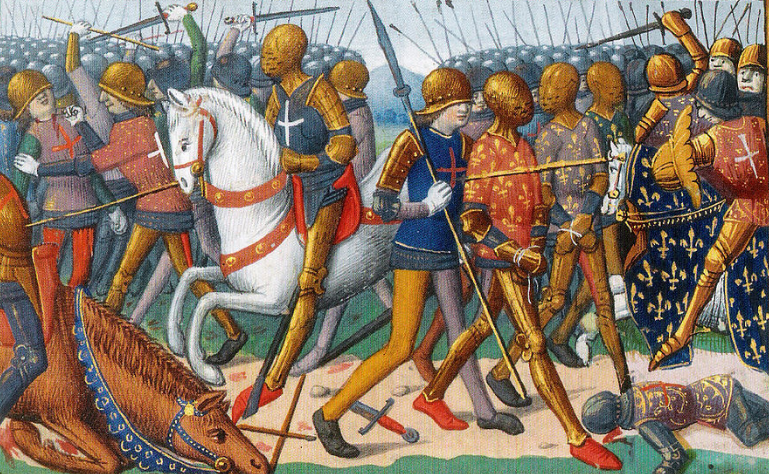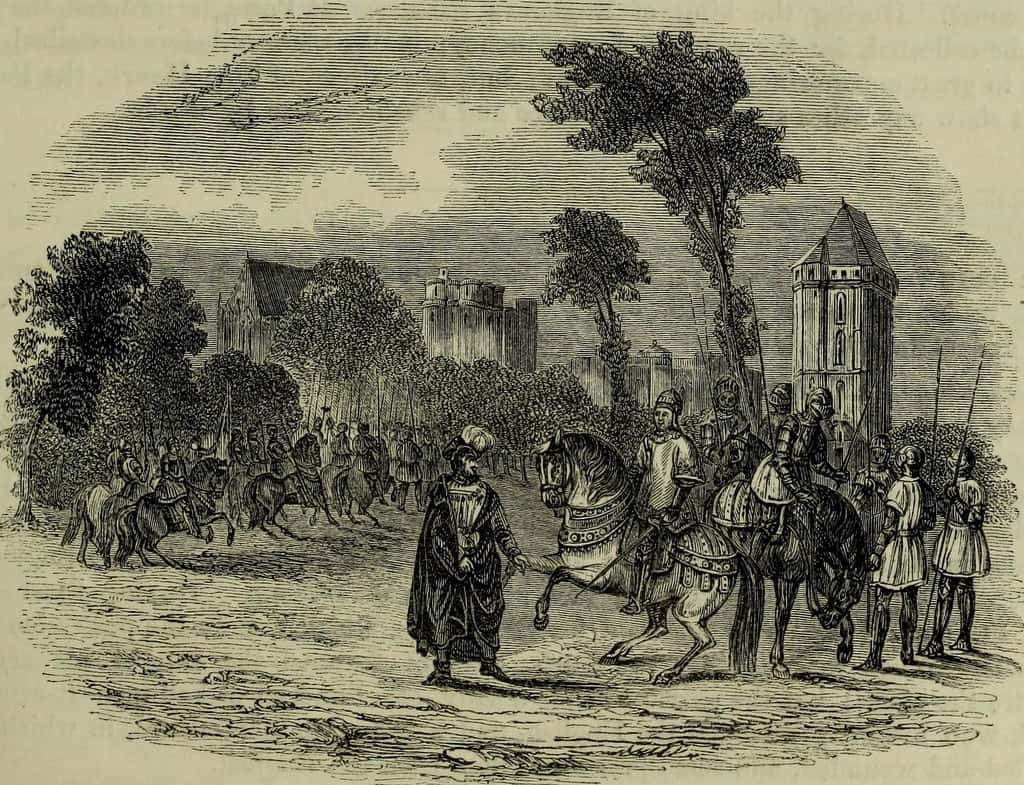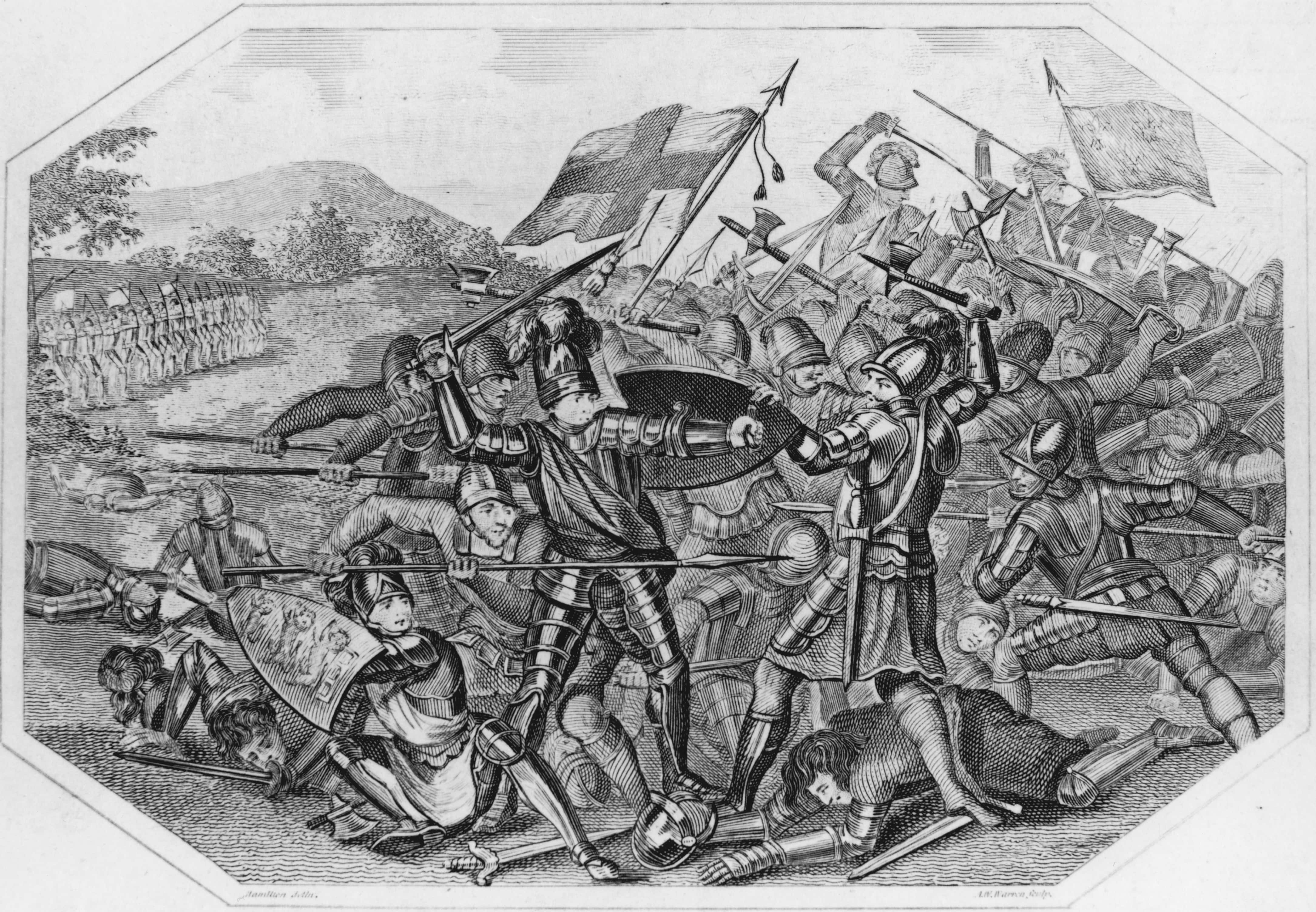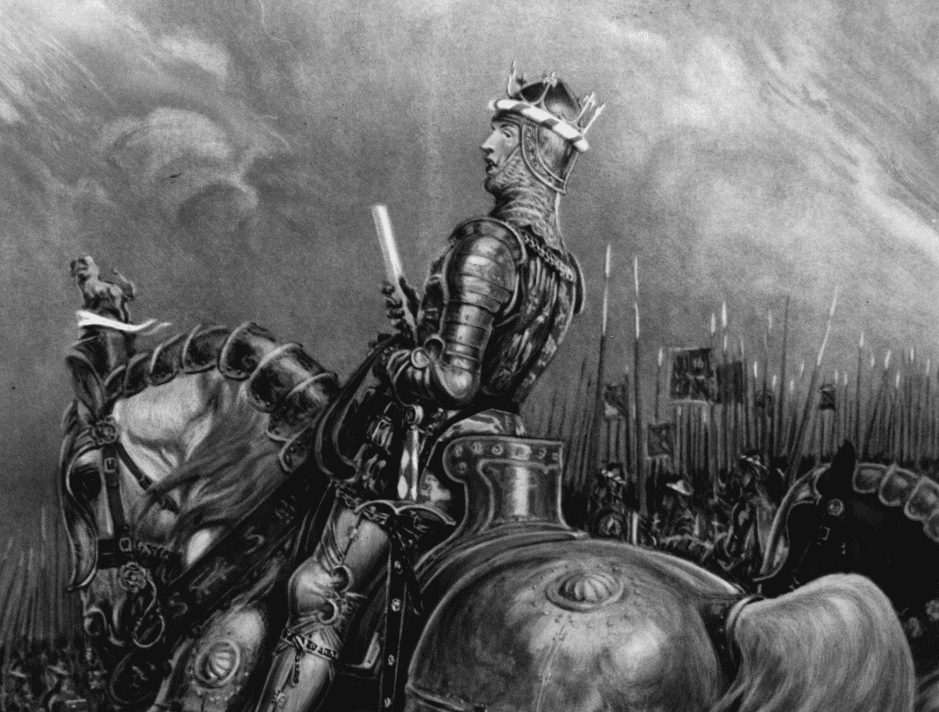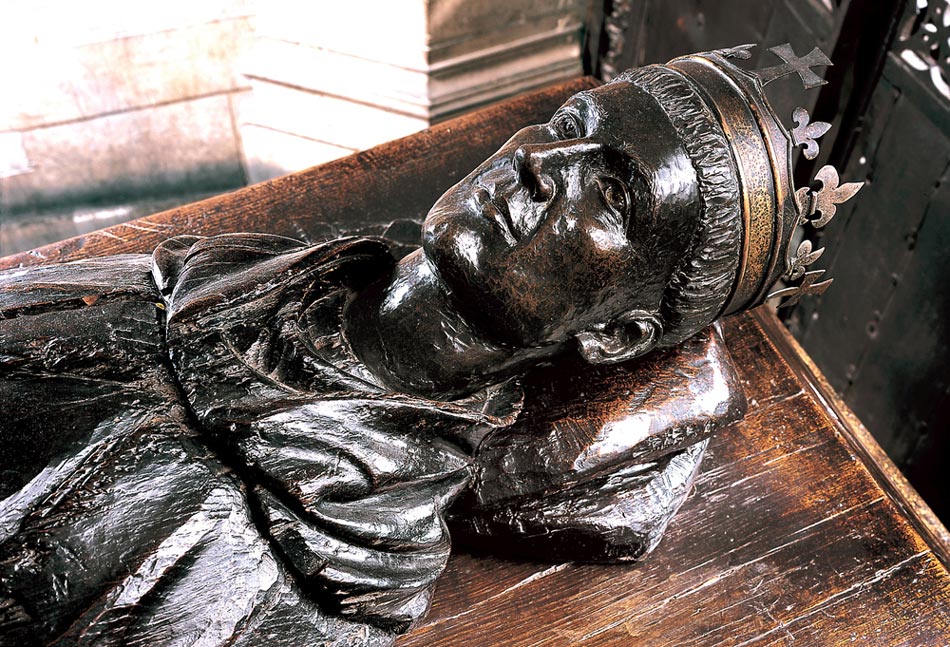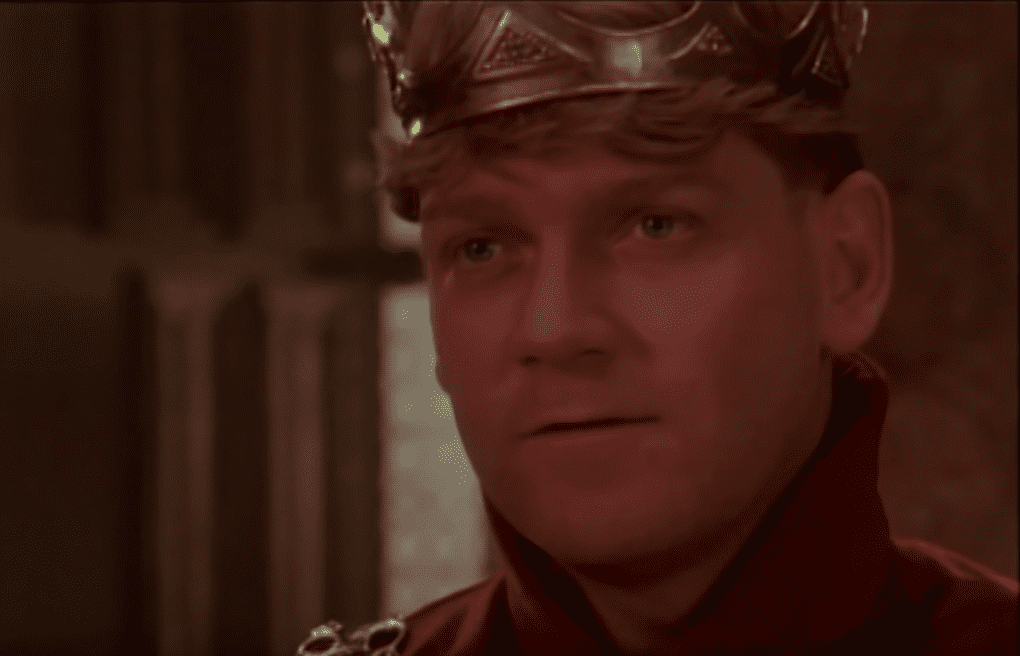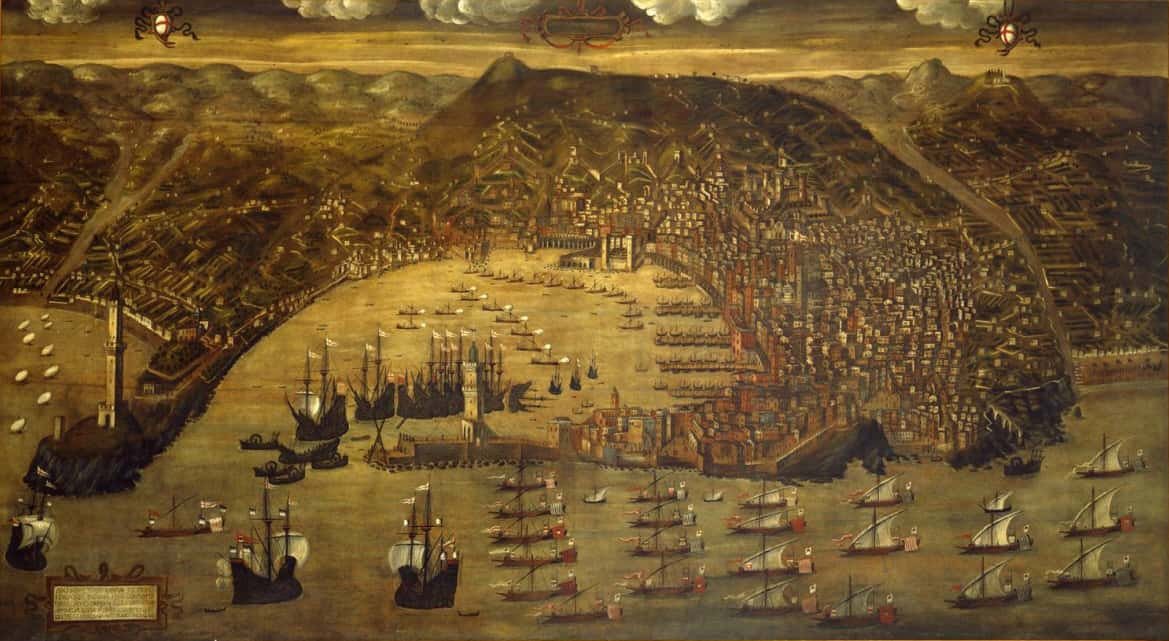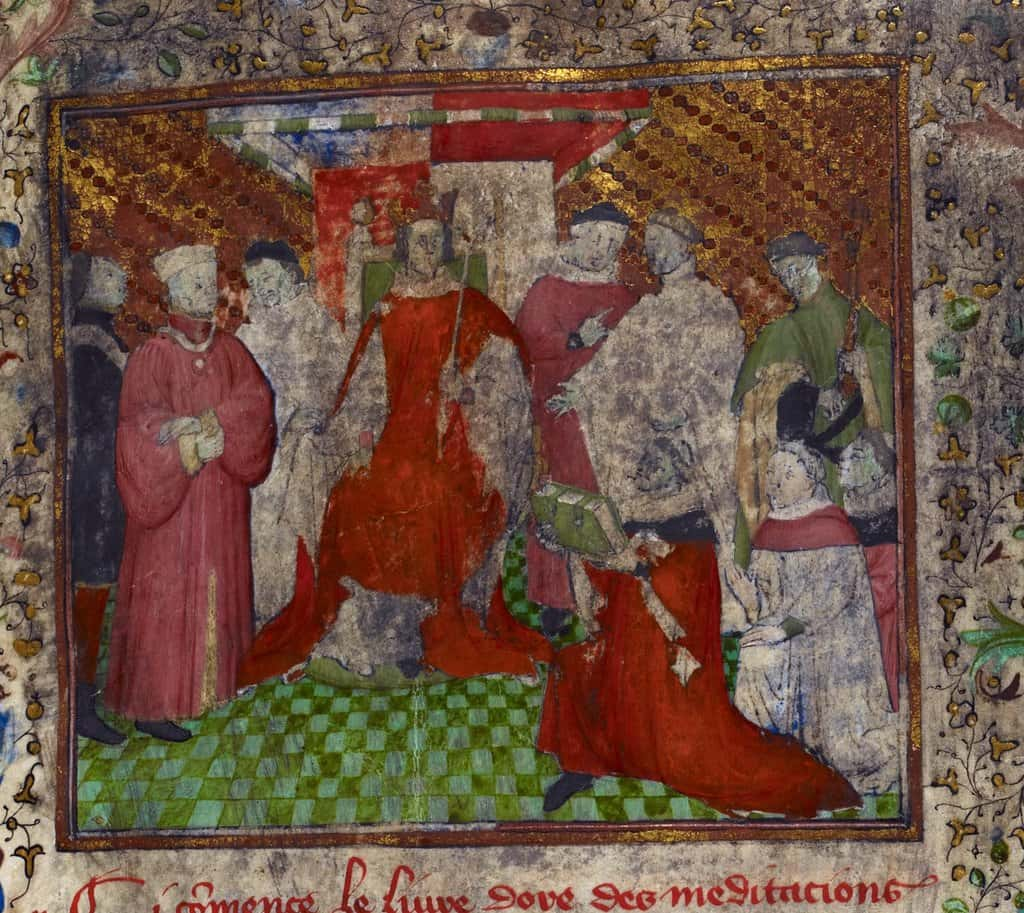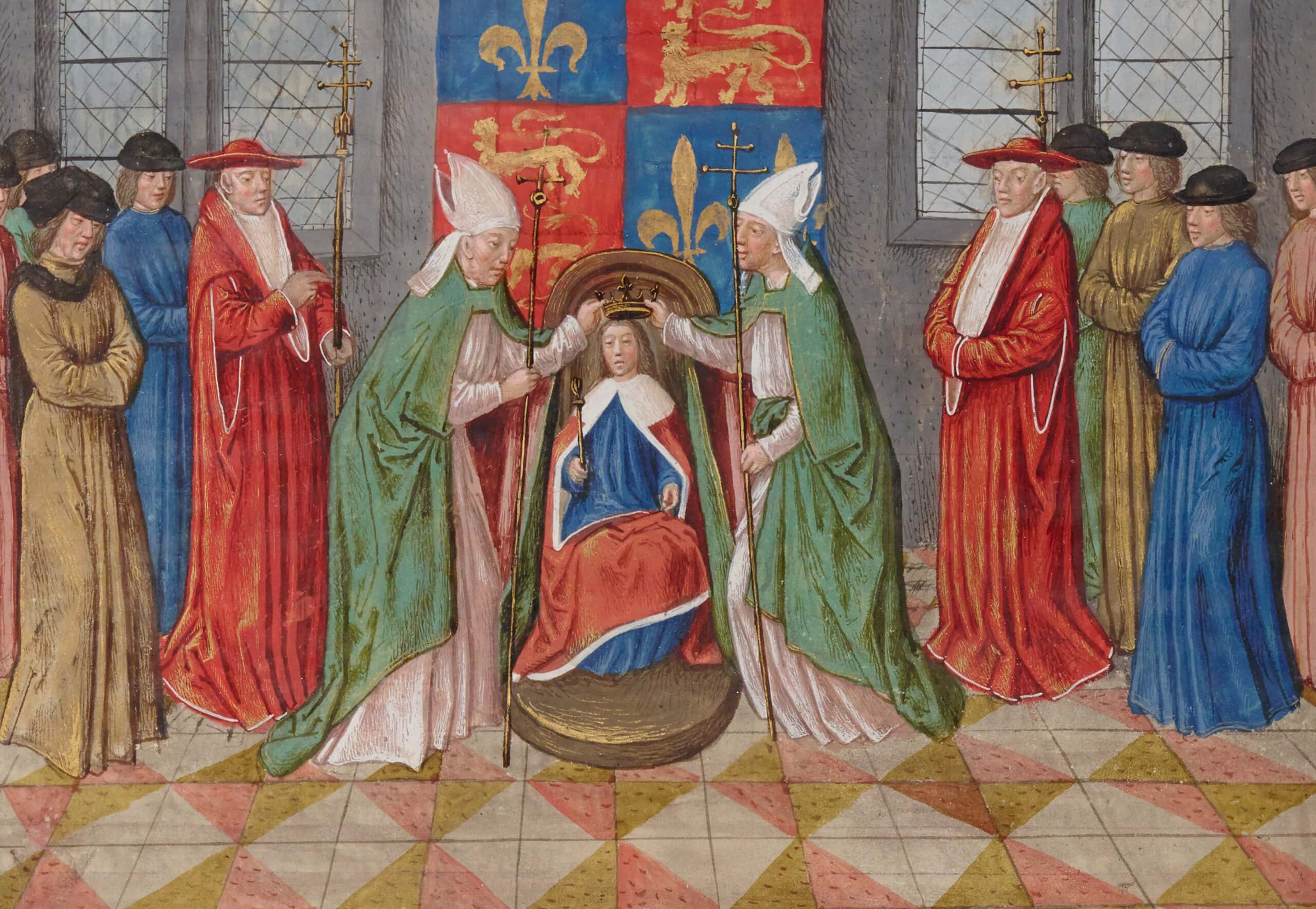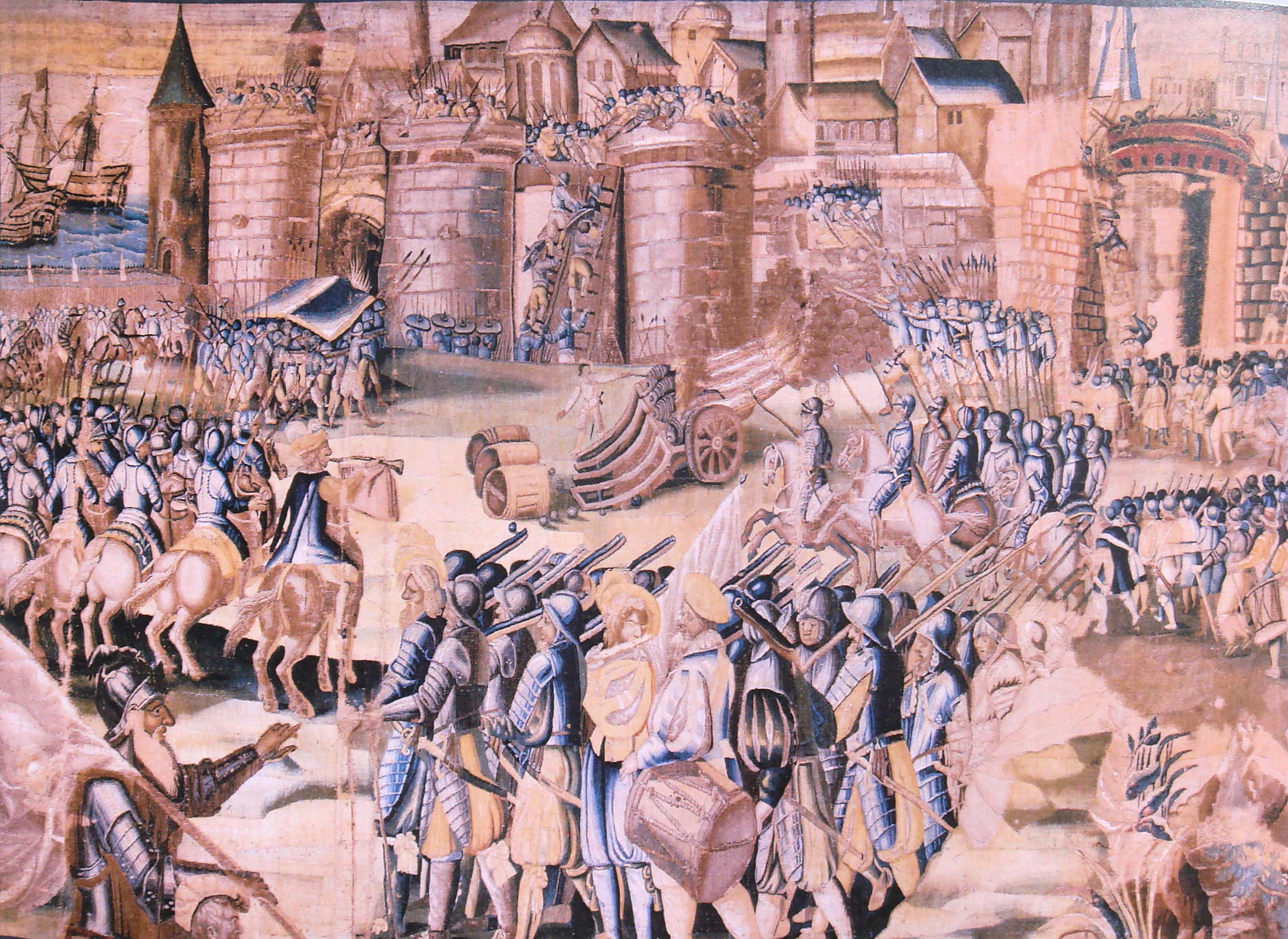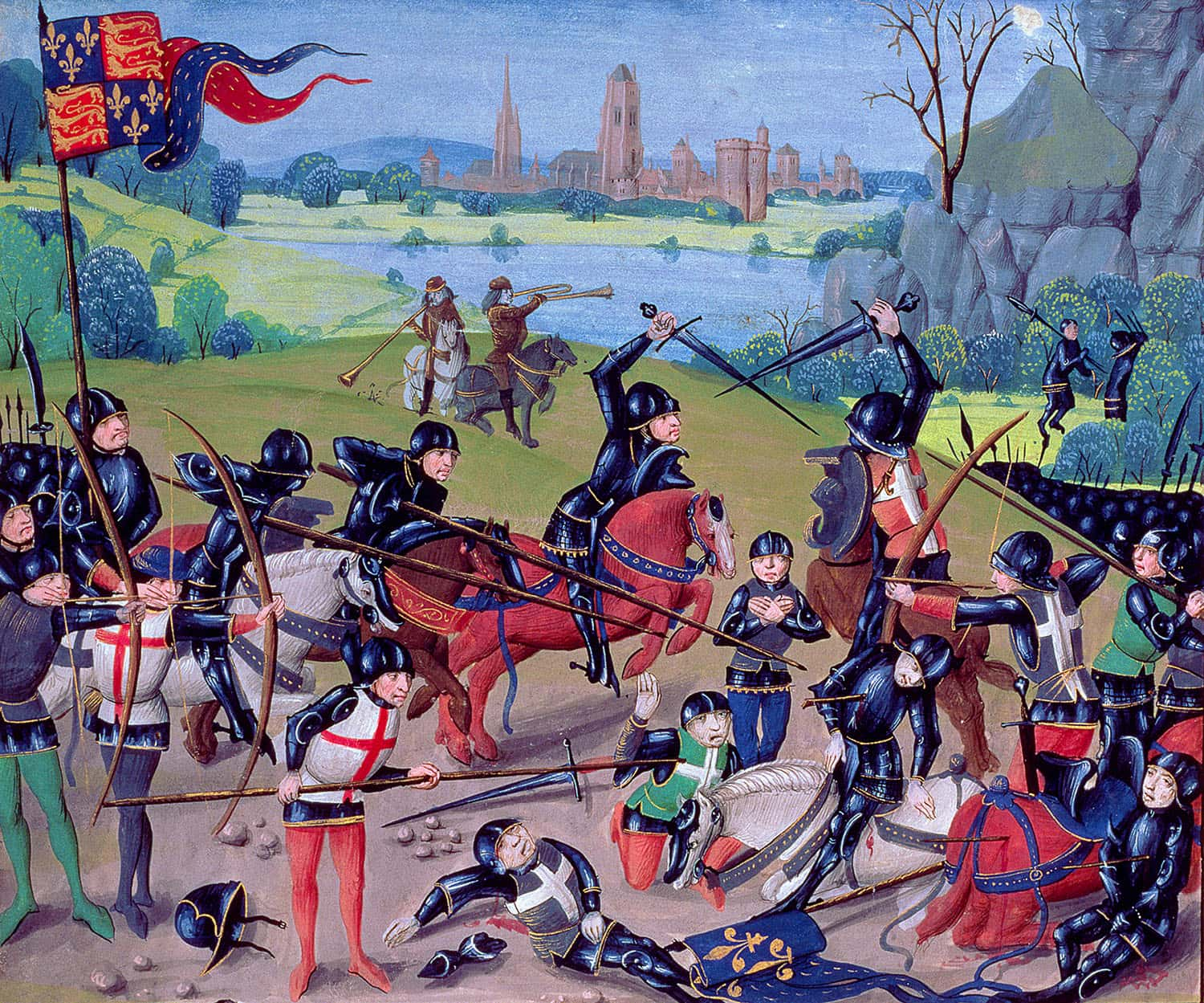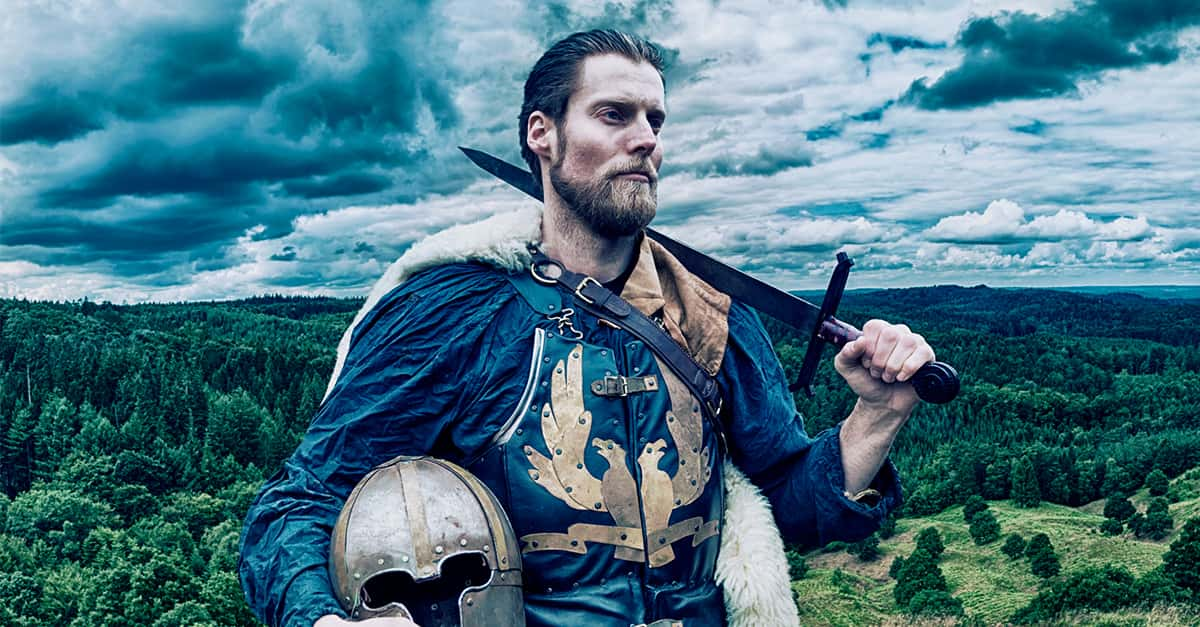Of all the kings in English history, Henry V is one of the most admired and revered. The biggest reason for this is his massive victory at the Battle of Agincourt, which nearly led to England winning the Hundred Years’ War.
Thanks in large part to the William Shakespeare play Henry V, Henry’s legacy has endured for centuries up to the present day. But was he as much of a hero as has always been shown? What else did he do as king? Find out more about him below!
Henry V Facts
42. Origins
Henry was born on September 16, 1386, in Monmouth Castle in Wales. He was the son of Mary de Bohun and Henry of Bolingbroke.
41. Don’t Anger a Royal
When Henry was a child, King Richard II of England had Henry’s father, Bolingbroke, banished from England just before he was meant to fight a duel of honor with the Duke of Norfolk. Bolingbroke had previously participated in a rebellion against the king the year after Henry’s birth.
40. Blood Ties
Henry’s paternal grandfather was John of Gaunt. Gaunt was the fourth son of King Edward III of England. This made Henry’s father a cousin of King Richard II, which factored heavily in the crisis of the throne.
39. Had it Better Than Theon Greyjoy, at Least!
During his father’s exile, Henry was taken in by Richard II as a ward of the crown. Despite the actions of Henry’s father, Richard II treated the boy with kindness and generosity. He accompanied the king to Ireland and was still there when Richard was deposed in 1399. Bolingbroke was then crowned as King Henry IV, and his son was brought back to England and became the Prince of Wales.
38. The Prequel We All Wanted
Aside from being the protagonist of William Shakespeare’s Henry V, Henry also appears in Henry IV parts I and II. Known mostly as Prince Hal in the two-part story, Henry goes from being a hedonistic youth to the worthy heir to his father, paving the way for his renowned kingship.
37. Not Quite Ready for Kingship
From 1410 until 1411, Henry IV was too ill to rule, which led to his son ruling by proxy. Of course, like any young man suddenly getting a taste of power, Henry imposed his own policies on the realm. When Henry IV recovered, he not only reversed his son’s policies, but had Henry removed from the council! We can assume that Henry left the room stomping his feet and flipping his dad off while angrily tweeting about his hard-knock life.
36. A Bad Influence
According to Shakespeare, Henry had a wild and adventurous youth, aided in his hedonism by Sir John Falstaff. However, Falstaff is a fictional character based on Sir John Oldcastle. Shakespeare had originally named Oldcastle’s fictional counterpart by his right name but had to change the name when Oldcastle’s descendants complained about the portrayal.
35. Good Old Nepotism!
One controversial aspect of Henry’s friendship with Sir John Oldcastle was the fact that Oldcastle was a prominent Lollard. The Lollards were a group who wished to reform the Roman Catholic Church—keep in mind, this was many years before the Protestants and other Christian branches emerged. The Lollards would provide a lot of trouble and conflict to both Henry IV and Henry V. At first, Oldcastle avoided heresy charges solely because of his connection to the young prince.
34. The Numbers Game
Henry was the second English king who belonged to the House of Lancaster. This house was a branch of the Plantagenet dynasty which had ruled England since 1154 when Henry II became king. Henry V was the tenth Plantagenet monarch to rule England. Later, the War of the Roses would go on to remove the House of Lancaster from the throne until the Tudor dynasty went on to end the Plantagenet dynasty.
33. Make Way for the King
According to the historical records, Henry was a very tall man, especially for Medieval standards. The warrior king stood a towering 6’3” tall, while he kept his face clean-shaven and his dark hair “cropped in a ring above the ears.”
32. The King is Dead… Long Live the King
His father, Henry IV, died in the March of 1413 after several years of battling repeated bouts of illness, including a possible case of leprosy. Henry became King of England on April 9 that same year, at the age of 27.
31. No Hard Feelings, Bro?
Because of Henry’s friendship with Sir John Oldcastle, Lollards were reportedly enthusiastic about Henry’s coronation in the hope that he would join their cause. However, he viewed the Lollards simply as a threat to domestic law and order. As a result, he ruthlessly persecuted the Lollards for heresy. In 1417, Oldcastle was executed by being burned at the stake, making for what we can only call the most horrifying unfriending in human history!
30. No More of This French Nonsense!
As some of you might remember, England was conquered in 1066 by Norman invaders commanded by William the Conqueror. As a result, the kings and noble class of England would use French as their first language. This tradition lasted for more than 350 years, even while the English and French fought the Hundred Years’ War. Henry V, meanwhile, was the first English king since William I to use English in his government and his personal correspondences.
29. Let’s Shake on It
Due to his father’s means of taking the throne, there were some who pointed out that Edmund Mortimer, Earl of March, also had a claim to the throne as heir to King Richard II. While some might have expected Henry to remove the problem with a poisoned cup, an execution, or a knife in the dark, he did none of those things. Henry kept Mortimer in his court and wished to let bygones be bygones. Mortimer, in turn, became completely loyal to Henry, recognizing him as his king.
28. A Conspiracy of Dunces
Despite Mortimer’s refusal to rebel against Henry, others were less willing to forget the past. In 1415, several nobles led by the Earl of Cambridge and Sir Thomas Grey wished to remove Henry from power and replace him with Mortimer. Ironically, the person to foil the plot was none other than Mortimer himself! He told Henry as soon as he was made aware of it, leading to the executions of the ringleaders. William Shakespeare would later claim that the Southampton Plot was financed by the French.
27. Larry’s Contributions to the War Effort
Henry was first portrayed onscreen British thespian Laurence Olivier. The 1944 film Henry V, adapted from the Shakespeare play, resulted in an Academy Award nomination for Olivier. Given that the film follows Henry’s great military victory in France, it’s not a coincidence that it came out in the middle of World War II. In fact, not only did British Prime Minister Winston Churchill urge Olivier to make the film as patriotic as possible but arranged for the film’s release to coincide with the 1944 Allied invasion of Normandy!
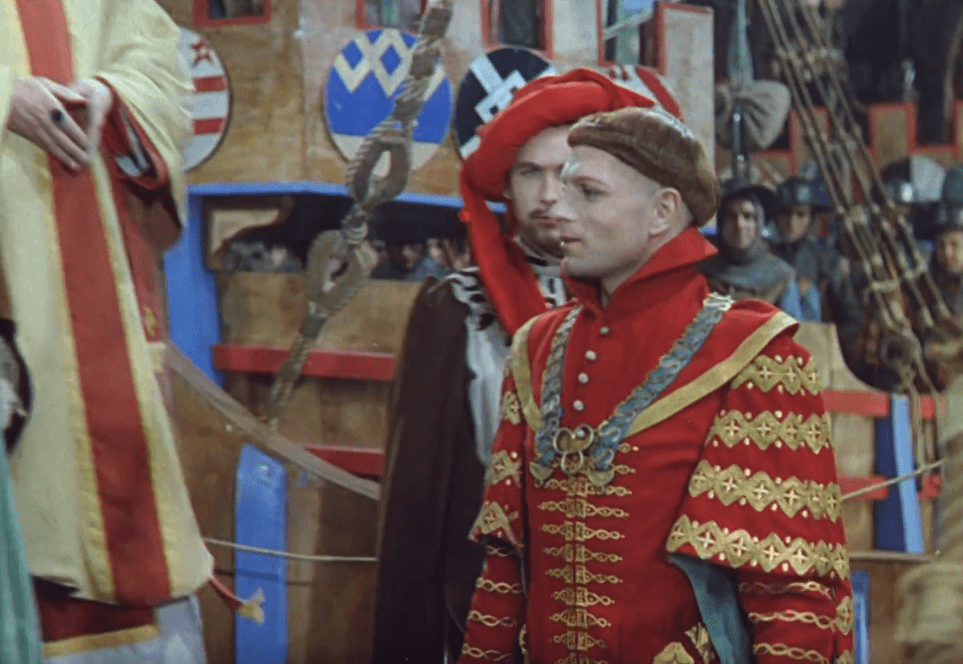 Henry V (1944), Eagle-Lion Films
Henry V (1944), Eagle-Lion Films
26. It’s Back On!
During Henry’s lifetime, England had been gripped in the Hundred Years’ War for decades. The English monarchs claimed the throne of France due to a female relation, which the French laws said didn’t count. When Henry V was crowned King in 1413, it had been 76 years since the war had begun. In fact, a peace treaty had been signed in 1389 which had held strong until Henry decided he wanted to start up the fighting again.
25. Motivation, Such an Aggravation
There are several conflicting explanations given for why Henry V reignited the war by invading France in 1415. One writer just a generation after Henry declared that Henry wanted to invade France as a distraction from his domestic troubles. However, although the Southampton Plot did occur shortly before Henry invaded France, there is no hard evidence that this was the case. A more likely explanation given was that France was in a very precarious position at the time. Their king, Charles VI, was battling mental illness and his heir was seen as a weak alternative. And of course, there’s the traditional reason that Henry wanted the throne of France, since he saw it as his.
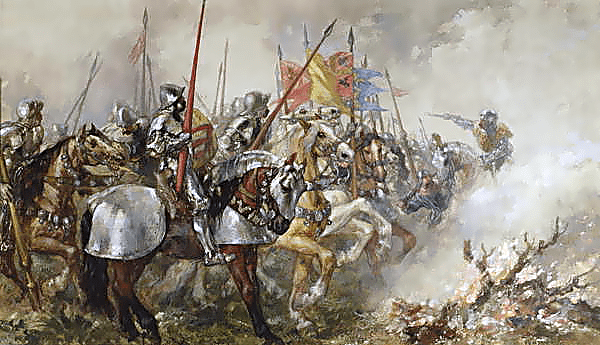 Wikimedia Commons John Gilbert
Wikimedia Commons John Gilbert
24. Small Screen Splendor
Henry has been portrayed in several television series over the years. Some of the actors who have played the warrior king are Robert Hardy, Martin Clunes, and Tom Hiddleston.
23. Coming Soon!
In 2019, Netflix will release an adaptation of Henry IV Part I, Part II, and Henry V. Henry will be played by actor Timothee Chalamet. Given the track record of actors playing Henry in films, maybe the Oscars will smile on him too!
22. Let’s Talk Turkey
Despite his 1415 invasion of France, Henry had tried negotiating a compromise the year before. Earlier in the Hundred Years War, the English had captured King John II of France, but had never received the complete ransom price which the French had agreed to pay. Henry offered to give up his interest in the French crown if he instead received the remaining 1.6 million crowns owed from John II’s ransom, as well as land in Normandy, Anjou, Aquitaine, and Brittany. He also requested Charles VI’s daughter in marriage. This offer was met with further haggling, which led to negotiations being called off in favor of open warfare.
21. “Once More Into the Breach, Dear Friends!”
In August 1415, Henry invaded France with 6,000 longbowmen and 2,000 men-at-arms. The first military action he took was besieging the fortress of Harfleur. The siege lasted just over a month, from August 18 to September 22, 1415.
20. “Will You Yield?!”
As the English cannons battered the defensive walls of Harfleur, the French defenders promised to give up their position if no relief force managed to break off the siege before September 23. Surprisingly, this honor code was fulfilled; Harfleur was surrendered to Henry on September 22
19. What Does It Mean!!??
Reportedly, when Henry was crowned king, London was gripped in a violent snowstorm. Allegedly, the commoners were fiercely divided on whether the snowstorm was a good sign or a bad one for their new king’s future reign.
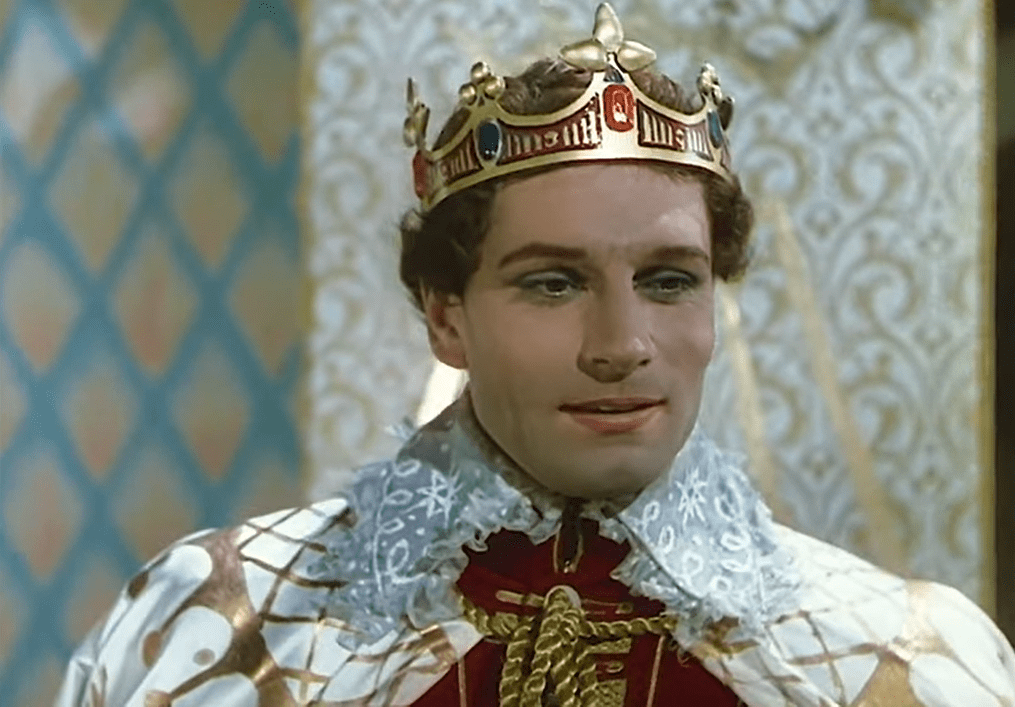 Henry V (1944), Eagle-Lion Films
Henry V (1944), Eagle-Lion Films
18. Do We Get Sick Leave?
One serious downside of the Siege of Harfleur for Henry was the fact that his army was struck with a serious case of dysentery. Of course, this was back when dysentery was much more dangerous, and it was known as “the bloody flux.” It’s been estimated that Henry lost between a quarter and a third of his men to this disease.
 Henry V (1944), Eagle-Lion Films
Henry V (1944), Eagle-Lion Films
17. Just Check the Guestlist!
As with any great victory in pre-modern human history, there are many conflicting reports as to how many people actually participated in the Battle of Agincourt. Henry’s army was said to either be as high as 9,000 or as low as 6,000 in number. The French, meanwhile, were said to have numbered between 12,000 and around 40,000 men in total. It’s just something that historians will never agree on until we finally invent time machines.
16. We’re Done For…
The Battle of Agincourt is one of the most lauded battles in English history, and that’s partially because England triumphed despite being the underdog. Their army was severely outnumbered by the French forces. Moreover, the English were still sick from dysentery and exhausted from a rapid march that Henry had driven them on in an attempt to reach the port city of Calais.
15. Mudslide Victory
Henry’s great victory at Agincourt stemmed from several factors, but the two biggest ones were arguably the battle positions and the terrain of the battlefield itself. The English were positioned on higher ground than the French, defending a narrow strip of land between heavy forest, which made it easier to repel the charging French knights. The English also made a near impenetrable wall of sharpened stakes to protect themselves.
As for the terrain, heavy rains had created heavy mud into which many Frenchmen found themselves trapped as they tried to charge upwards. In fact, it’s widely believed that a large number of the French casualties during the battle were shot by arrows or butchered while they were floundering in the mud!
14. Was that a Typo?
Henry appears as a supporting character in the Bernard Cornwell historical fiction novel Azincourt (in the US, the title was Agincourt). The book follows Henry’s 1415 campaign in France, including the Siege of Harfleur and the Battle of Agincourt.
13. Short but Glorious
For such a beloved king, Henry’s reign lasted less than ten years! By contrast, his father had reigned for over 14 years and his son would be king on-and-off for 40 years.
12. Appropriate Casting
In 1989, celebrated thespian Kenneth Branagh made his name with his own adaptation of Shakespeare’s Henry V. Not only did Branagh star as the warrior king, he also made the film his directorial debut. It helped that at 28 years old, Branagh was actually around a year younger than the real Henry had been when he fought at Agincourt. Laurence Olivier, by contrast was in his late 30s when he played Henry.
11. Unique Record
Just like Laurence Olivier, Kenneth Branagh was nominated for an Academy Award for his performance as Henry. In fact, as of 2018, Branagh continues to be the last actor to receive an Academy Award nomination for performing a character in a Shakespearean film adaptation.
10. Bad Form, Henry
One of the most controversial episodes of Henry’s reign occurred in the aftermath of his victory at Agincourt. Despite the French retreat, the English had taken so many French prisoners that they were outnumbered. Henry became alarmed that the prisoners might collect weapons from the battlefield and turn on their exhausted captors. Therefore, Henry ordered the majority of the prisoners to be killed. Many of his knights refused to be a part of such unchivalrous action, but Henry ensured that the bloody deed was done regardless. It remains debatable how many of the prisoners were actually executed in cold blood, but frankly, even one would be considered a violation of the Geneva Convention nowadays.
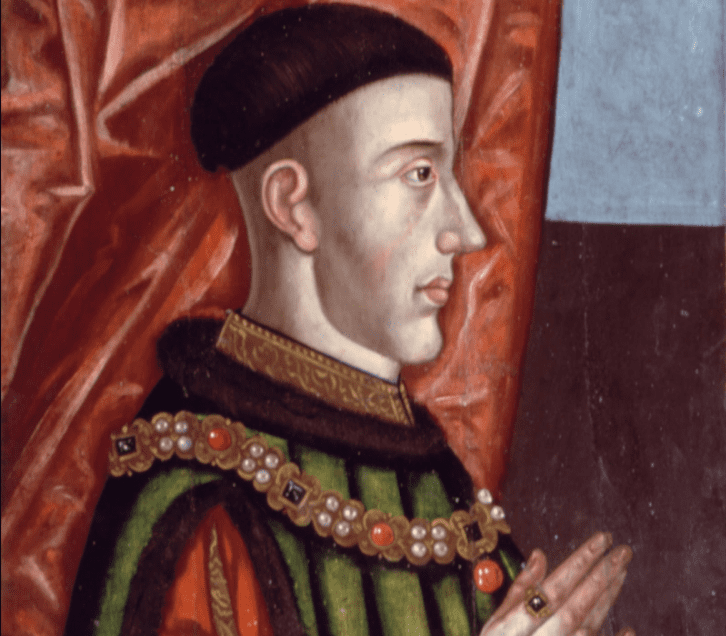 Wikimedia Commons Google Cultural Institute
Wikimedia Commons Google Cultural Institute
9. Just Hang Back for Now
Despite the great victory at Agincourt, it took two years for Henry to return to reap the benefits in France. In that time, he had to deal with a massive French and Genoese fleet of ships threatening the English Channel. Additionally, Henry also used diplomacy to ensure that Holy Roman Emperor Sigismund wouldn’t join the French cause against England.
8. It is Accomplished!
On May 21, 1420, the Treaty of Troyes was signed. In addition to marrying King Charles VI’s daughter, Catherine, Henry was recognized as Charles’ heir to the throne of France. The Hundred Years’ War was all but won for England.
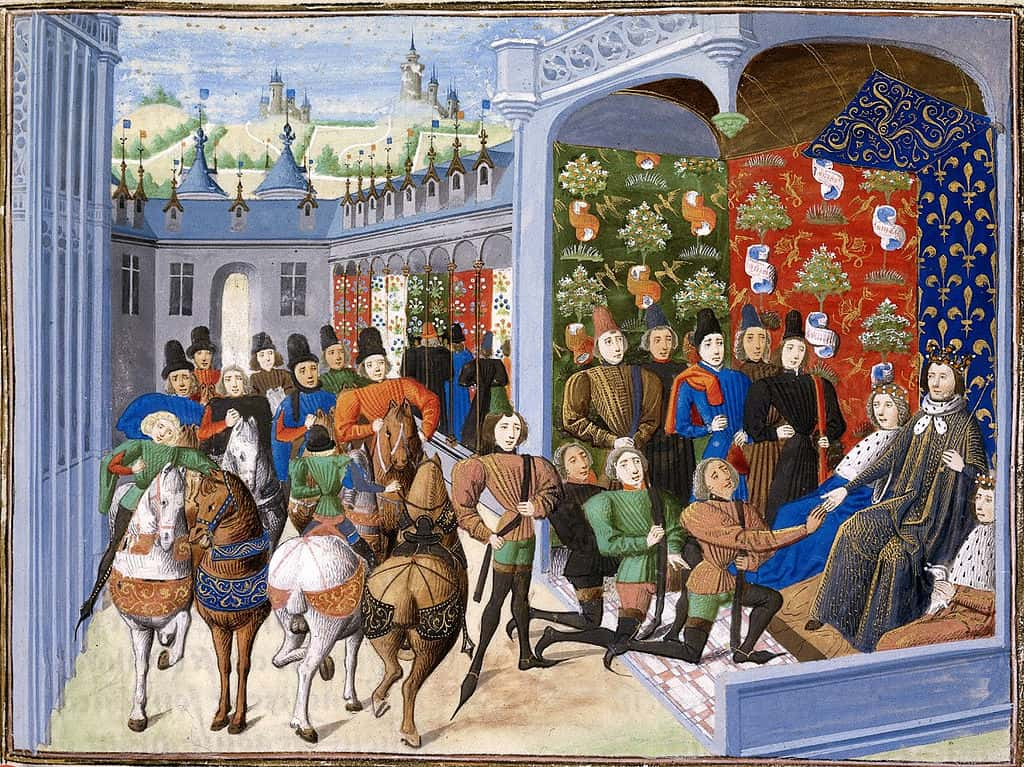 Wikimedia Commons
Wikimedia Commons
7. A Twist that George R.R. Martin Would Be Proud of…
Of course, you might recall that the English kings did not become kings of France. This is because Henry managed to die before the aging, mentally disabled Charles VI. At the age of 36, Henry died suddenly of an illness which many assume to have been dysentery. Charles would die just two months later, and in the confusion, the French rallied and slowly drove the English out again.
6. A Mad King in the Making
At the time of Henry’s death, he had one son with Catherine. This son, also named Henry, would go on to inherit the madness which affected his grandfather, Charles VI. Not only that, he would be the last Lancaster king to rule England before the War of the Roses led to his deposition and eventual murder at the order of the House of York.
5. What is This? Animal House?
Contrary to Shakespeare’s portrayal, it might be possible that Henry was never that wild or rambunctious as a youth. Given that he was helping his father govern and lead armies from a young age, it’s been suggested that the idea of Henry goofing around and behaving like a spoilt royal originally spread as slander against him. Of course, the idea of a prince shedding his wild side to embrace the responsibility of royalty is too good to pass up, so we can see why Shakespeare went with that angle.
4. The Lesser-Known Brother
Despite Henry’s successful campaigns in France during the late 1410s, it wasn’t all sunshine and rainbows for the English cause. In 1421, mere months before the Treaty of Troyes was finalized, an army of 4,000 Englishman under Henry’s younger brother Thomas of Lancaster, the Duke of Clarence, met an army of 5,000 Frenchmen and Scottish allies. The Battle of Baugé was a disastrous defeat for Clarence, who was killed during the battle, along with 1,000 of his men. Meanwhile, 500 more of his men were taken prisoner, while the Scots and French suffered light casualties.
3. That’s Cold-Blooded!
From July 1418 to January 1419, Henry laid siege to Rouen. As a result, the inhabitants soon ran out of food, and tried to send out thousands of the lower-class civilians to save food for the Rouen garrison. In an act of practical cruelty, however, Henry wouldn’t let 12,000 French mouths leave the war zone, leading the starving citizens to rest in no man's land between the English camp and the city walls. It got so bad that even the besieging Englishmen pitied their foes. It was this action, not the massacre at Agincourt, which put a dark stain on Henry’s reputation.
2. Crap Slides Downhill, After All
One aspect of Henry’s great victory at Agincourt which never gets shown in the adaptations is the fact that most of the English archers went into battle wearing no pants! This was actually because the dysentery which they still suffered from caused diarrhea, and it was much more freeing, to use that word, if you could fire arrows without worrying about soiling your pants. Of course, this means that the horrifying aspect of this humorous anecdote (for the French) was that it might not have just been mud that they were getting stuck in!
1. That’s Gonna Hurt in the Morning!
When Henry was 16 years old, he fought alongside his father at the Battle of Shrewsbury in 1403. Father and son were fighting the forces of Henry “Hotspur” Percy, presumably because they felt there were way too many men named Henry running around. During the battle, Henry was nearly killed when he took an arrow to the face! His wound was so grievous that the royal physician had to craft a whole new tool to extract the arrow without further injuring the prince. Henry would live with the scars for the rest of his life, and undoubtedly one of the best stories that anyone would be able to tell!
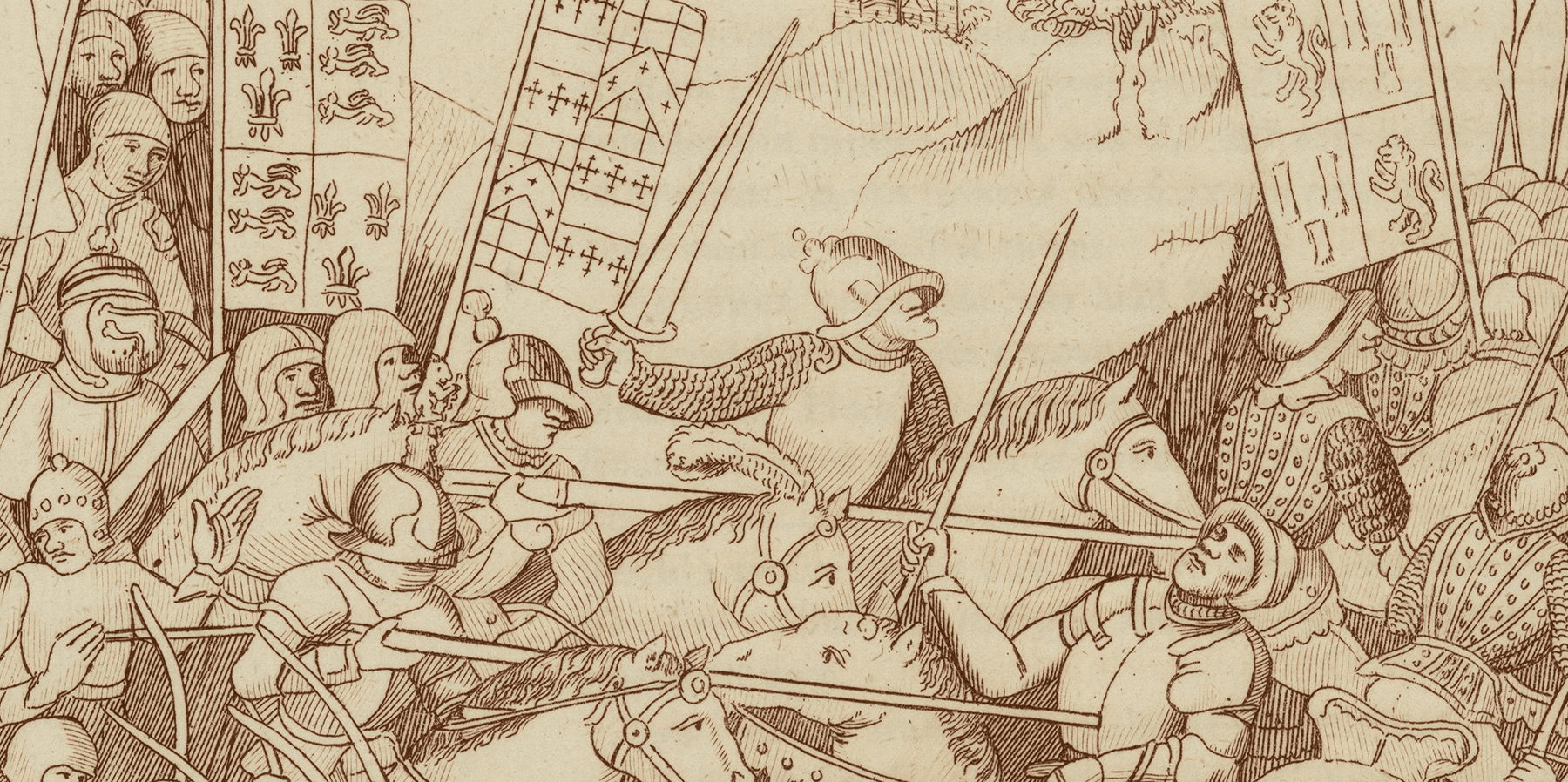 Wikipédia
Wikipédia

